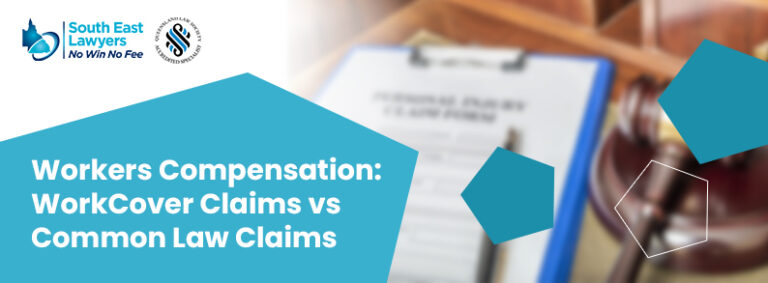If you’ve suffered a knee injury at work, you might be wondering what compensation you could be eligible for through WorkCover.
Knee injuries can range from minor sprains to serious ligament damage, and navigating the claims process for the appropriate Workcover payout for knee injury can be challenging.
In this guide, we’ll break down the critical steps for securing a WorkCover payout for your knee injury, address the types of injuries covered, and give you an overview of what compensation you might expect—all aimed at supporting your recovery and financial stability.
Key Takeaways
- Understanding eligibility and claim procedures for knee injury compensation is essential, including immediate reporting to employers, obtaining a Work Capacity Certificate, and filing within statutory time frames.
- WorkCover covers a wide range of knee injuries, from ligamentous trauma to meniscal damage, and compensation includes coverage for medical treatment, hospital stays, rehabilitation, lost wages, and potentially lump sum payments for permanent impairment.
- Maximising a knee injury payout under WorkCover entails understanding the calculation of compensation, meeting critical deadlines, leveraging no win no fee lawyers, and ensuring effective rehabilitation and reintegration into the workforce.
Navigating WorkCover Claims for Knee Injuries
Embarking on a journey to secure knee injury compensation can seem overwhelming, but with the right knowledge, it’s a navigable path. Whether you’re facing a sprain from a slip at work or a serious knee injury from heavy lifting, it’s crucial to understand your rights and the steps involved in filing a knee injury compensation claim.
From the moment the injury occurs, to the eventual resolution of your claim, we’ll explore the intricacies of the workers compensation claim process, highlight the role of personal injury lawyers, and ensure you’re equipped to tackle your knee injury claim with confidence.
Eligibility for WorkCover Knee Injury Compensation
Determining if your knee injury qualifies for knee injury workers compensation is the first critical step. An eligible knee injury is one that’s integrally linked to your work duties or occurred within your work environment. Whether it’s a torn ligament from an abrupt pivot or knee bursitis from repetitive kneeling, if the injury is rooted in your employment activities, you may have a viable knee injury compensation claim. Understanding these criteria is imperative, as is seeking the guidance of a specialist personal injury lawyer to navigate the complexities of personal injury law.
Initiating Your WorkCover Claim
Once eligibility is established, initiating your WorkCover claim is the next step. Here’s what you need to do:
- Report your workplace injury to your employer.
- Seek immediate medical attention to obtain a Work Capacity Certificate.
- With these in hand, you can proceed to submit your WorkCover claim form. Remember, timing is of essence; the claim must be lodged within the statutory timeframe to ensure your rights are preserved.
If you encounter any barriers, personal injury solicitors can provide the necessary support to streamline your workers compensation insurance claim.
What to Expect After Filing a Claim
After filing your knee injury claim, expect an assessment process aimed at reaching a decision swiftly. While most claims are decided within 10 business days, complex cases may take longer. Throughout this period, you’ll receive updates, and if a favourable decision is made, details on your compensation payout will follow.
Should your claim face rejection, clear reasons will be provided along with steps for appeal. Quick provision of information can lead to a faster decision, emphasising the importance of being prepared and proactive.
Types of Knee Injuries Covered by WorkCover
WorkCover is not limited to a narrow scope of injuries; it encompasses a variety of common knee injuries, including:
- Ligamentous trauma
- Meniscal damage
- Kneecap injuries
- Knee joint traumas that arise from diverse work activities.
Whether it’s a severe knee injury from a fall or a repetitive strain injury leading to knee pain, understanding the types of knee injuries that are typically covered will help you recognise when to seek compensation for a knee injury at work.
Ligamentous Injuries and Workers Compensation
Ligamentous injuries, such as the dreaded anterior cruciate ligament (ACL) tear, are common among workers and are eligible for compensation. These severe knee injuries can be caused by workplace activities like sudden movements or awkward landings, where an injury occurred. Recovery may require extensive medical treatment, and workers’ compensation aims to cover these costs.
It’s important to understand that for such serious injuries, the road to recovery may be long, but workers’ compensation is designed to provide the support you need to make it through.
Meniscal Damage and WorkCover Eligibility
Meniscal tears, another prevalent injury among workers, can occur due to a variety of work-related activities. These injuries can be debilitating, often necessitating surgical intervention and extensive rehabilitation. It’s important to know that if your meniscal injury is work-related, you’re likely entitled to workers’ compensation, which can provide a financial safety net during your recovery.
In severe cases, such as those requiring knee replacement, WorkCover can offer the necessary support to facilitate your rehabilitation.
Calculating Your Knee Injury Compensation
Unlocking the mystery of how much compensation you may receive for a knee injury begins with an understanding of the factors that influence the calculation. The compensation claim process considers the severity and location of the injury, the estimated recovery time, and the impact on your work capacity. Whether it’s a mild knee bursitis or a serious injury requiring reconstructive surgery, the aim is to ensure that the compensation payout reflects the true extent of your injury and its repercussions on your personal and professional life.
Medical Expenses and Reimbursement
When it comes to medical expenses, WorkCover steps in to alleviate the financial burden. An accepted claim can cover payments for medical treatment, hospital stays, and rehabilitation costs. It’s essential to keep a meticulous record of your medical expenses and submit them for reimbursement. Be aware, however, that there are limitations; treatments by non-registered practitioners or unauthorised costs may not be covered.
Knowing these details is crucial to manage your expectations and ensure you’re reimbursed appropriately.
Lost Wages and Earning Capacity
A knee injury can significantly impair your ability to work, leading to lost wages and potentially impacting your future earning capacity. WorkCover provides the following benefits to compensate for this income loss based on your earnings prior to the injury:
- Weekly payments
- Medical and rehabilitation expenses
- Lump sum compensation for permanent impairment
- Return to work assistance
For permanent impairments, a more comprehensive assessment is done to determine the extent of impact on your future work prospects. The goal is to provide a compensation payout that’s fair and reflective of your individual circumstances and the challenges you face due to your knee injury.
Lump Sum Payments for Permanent Impairment
For those with permanent impairment as a result of a knee injury, a lump sum payment may be an option. This type of compensation is designed to account for the long-term effects of your injury, with the amount varying based on the assessed degree of impairment.
Navigating the eligibility criteria and the claims process for these lump sum payments is a critical part of maximising your compensation. Understanding the thresholds and steps involved in claiming such a payout is vital for those facing a future altered by a workplace knee injury.
Understanding Permanent Impairment Threshold
The permanent impairment threshold is a pivotal factor in your eligibility for a lump sum payout. It’s important to note that many knee injury claimants may not meet this threshold, which underscores the necessity of a thorough and accurate medical assessment.
This assessment determines the degree of your impairment and, consequently, the lump sum compensation you may be entitled to.
Steps to Claiming a Lump Sum Payout
Securing a lump sum payout for permanent impairment starts with a medical assessment to quantify the impairment percentage. Should you disagree with the initial assessment, there are avenues for reassessment or review. The ultimate lump sum offer is based on this assessed degree of impairment, and understanding your rights to either accept or challenge the offer is integral to the process.
For those with substantial impairments, this lump sum can play a significant role in managing the long-term financial implications of their injury.
Legal Costs and No Win No Fee Lawyers
Navigating the legal landscape of a knee injury compensation claim can be daunting, and the potential costs involved often deter individuals from seeking the compensation they deserve.
Enter the no win no fee lawyer: a game-changer that can help you pursue your claim without the fear of upfront legal fees. Understanding the role and benefits of these legal professionals, particularly in the context of knee injury cases, can empower you to take the necessary steps toward securing your rightful compensation.
The Role of Personal Injury Lawyers in Knee Injury Cases
Personal injury workers compensation lawyers play an indispensable role in the realm of knee injury claims. Their expertise includes:
- Overturning denied claims
- Calculating and negotiating compensation for pain and suffering
- Providing a deep understanding of personal injury law and the nuances of the compensation process
- Elucidating the value of your claim
- Advocating on your behalf
Whether you’ve experienced a common knee injury or a more complex case, a specialist personal injury lawyer can be your ally in securing the highest possible compensation award.
Benefits of Choosing a No Win No Fee Lawyer
The decision to opt for a no win no fee lawyer comes with significant benefits. This arrangement not only minimises your financial risks but also aligns your lawyer’s motivation with the success of your claim. However, it’s crucial to understand the terms of the agreement to avoid unexpected costs.
With the assurance that your lawyer is invested in achieving a positive outcome, you can confidently pursue your knee injury compensation claim, knowing you have expert representation that’s financially accessible.
Time Limits and Deadlines for Knee Injury Claims
The clock starts ticking the moment a knee injury occurs at work. There are stringent time limits and deadlines within which you must file a WorkCover claim, and failing to adhere to these can jeopardise your compensation. It’s vital to be aware of these critical deadlines and to understand when and how extensions can be granted.
By staying informed and timely, you can ensure your knee injury claim proceeds without unnecessary delays or complications.
Critical Deadlines for Initial Claims
For knee injury compensation claims, time is of the essence. The standard timeline for submitting a claim is within 6 months of the injury, but under certain circumstances, this period may be extended to 3 years. Having a reasonable excuse for delay or dealing with a serious and permanent impairment could allow for this extension.
It’s also crucial to be aware of the timeframe for disputing a denied claim to ensure your rights are protected throughout the claims process.
Extension Requests and Exceptional Circumstances
Life is unpredictable, and sometimes exceptional circumstances may impede your ability to file a knee injury claim within the standard deadlines. In such cases, the courts can grant extensions, considering factors such as the severity of the injury, psychological impact, and the timing of the injury’s discovery. Understanding these exceptions and how to request extensions is paramount in safeguarding your ability to seek compensation despite unforeseen challenges.
Rehabilitation and Returning to Work
Recovery from a knee injury is not just about healing physically; it’s also about reclaiming your role in the workforce. Rehabilitation and a successful return to work require a well-coordinated effort between you, your healthcare providers, and your employer.
By accessing the appropriate rehabilitation services and navigating the return-to-work process effectively, you can aim to resume your professional life in a safe and supportive environment.
Accessing Rehabilitation Services
Rehabilitation is a critical component of recovery, and WorkCover provides funding for services that promote the healing process. From medical and allied health treatments to return to work programs, these services are essential in helping you regain your strength and functionality.
Being informed about the coverage and limits of these services is crucial to ensuring that your rehabilitation journey is fully supported by WorkCover, allowing you to focus on your recovery without financial stress.
Navigating the Return-to-Work Process
The journey back to work after a knee injury is paved with careful planning and adjustments. Collaborating with your employer, doctor, and rehabilitation providers to develop a return-to-work plan is key. This plan should accommodate your medical restrictions and gradually reintroduce you to your professional duties.
With a thoughtful approach and the right support, you can make a successful transition back to work, minimising the risk of re-injury and ensuring long-term well-being.
If you’ve experienced a knee injury at work talk to us today
At South East Injury Lawyers, we help people get the compensation they are entitled to when it comes to workplace injuries. Knee injuries can be life long and cause many disruptions to various aspects of your life. We can work with you to understand all of your options, as well as make a claim for workers compensation and ensure you can focus on your recovery.
Get in touch by calling us on 1300 446 999 or booking a consultation online here.






